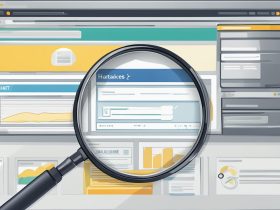Scammers are always coming up with new tactics to trick people into giving away their personal information or money. Unfortunately, it seems like every week there are new scams to be aware of. Recently, USAA, Adobe, Walmart, and more have been targeted in some of the top scams of the week.
One common tactic scammers use is to send fake security alerts and prompt you to verify your account via the attached phishing link. In the case of USAA, there have been lots of fake emails claiming that a payment to your account is on hold and that you need to take urgent action to receive it. The scammers instruct you to click on the attached file to update your security settings, but this is just a ploy to get you to give away your personal information.
Another scam to be aware of is the T-Mobile rewards scam. Scammers send out fake emails asking you to take a survey and claim a reward. If you click on the button in the email, you will be led to a fake website where you will be asked to enter your personal information. It’s important to always be cautious when receiving unsolicited emails and to verify the legitimacy of the sender before clicking on any links or entering personal information.
Identifying Scams from Major Brands
Major brands like USAA, Adobe, and Walmart have been targeted by scammers in various ways. It is important to be aware of the tactics they use to avoid falling victim to their scams. Here are some common tactics used by scammers and how to identify them.
USAA: Financial Fraud Tactics
USAA is a popular financial services company that provides insurance, retirement, and other banking solutions to the military and their families. Scammers often use USAA’s name to trick people into giving away their personal information. One of the most common tactics scammers use is to send fake security alerts and prompt you to verify your account via the attached phishing link. Be wary of any email or text message that asks you to click on a link to verify your account information. If you suspect that the message is a scam, do not click on any links or download any attachments. Instead, contact USAA directly to verify the authenticity of the message.
Adobe: Phishing Attack Patterns
Adobe is a software company that provides a range of creative and marketing software products. Scammers often use Adobe’s name to lure people into downloading malware or giving away their personal information. One of the most common tactics scammers use is to send fake emails that appear to be from Adobe. These emails may ask you to click on a link to update your account information or download a new version of Adobe software. Be wary of any email that asks you to click on a link or download an attachment. If you suspect that the email is a scam, do not click on any links or download any attachments. Instead, contact Adobe directly to verify the authenticity of the email.
Walmart: Retail Scams and Misleading Offers
Walmart is a retail giant that offers a wide range of products at competitive prices. Scammers often use Walmart’s name to lure people into buying fake products or giving away their personal information. One of the most common tactics scammers use is to send fake emails or text messages that appear to be from Walmart.
These messages may offer free products or discounts if you click on a link or provide your personal information. Be wary of any message that asks you to click on a link or provide your personal information. If you suspect that the message is a scam, do not click on any links or provide any personal information. Instead, contact Walmart directly to verify the authenticity of the message.
By being aware of these common tactics used by scammers, you can protect yourself from falling victim to their scams. Always be cautious of any message that asks you to click on a link or provide your personal information. If you suspect that a message is a scam, contact the company directly to verify the authenticity of the message.
Protective Measures and Reporting
Enhancing Personal Cybersecurity
To avoid falling victim to scams, individuals can take various measures to enhance their personal cybersecurity. One of the most important steps is to keep personal information private and secure. This includes avoiding sharing sensitive data such as passwords, PINs, and one-time codes with anyone, including USAA employees. USAA will never ask for such information via phone, email, or text message, so individuals should be wary of any unsolicited requests for such information.
Another important measure is to be cautious when clicking on links or downloading attachments from unknown sources. Scammers often use phishing emails to trick individuals into clicking on malicious links or downloading malware-infected attachments. To avoid such scams, individuals should only click on links and download attachments from trusted sources.
Additionally, individuals should ensure that their devices and software are up-to-date with the latest security patches and updates. This can help prevent cybercriminals from exploiting known vulnerabilities in outdated software to gain access to personal information.
Reporting Scams to Authorities
If an individual suspects that they have fallen victim to a scam, or if they have received a suspicious email or text message, they should report it to the appropriate authorities. For example, individuals can report phishing emails to the Anti-Phishing Working Group (APWG), which is a global coalition of industry, government, and law enforcement organizations dedicated to combating phishing scams.
Individuals can also report scams to the Federal Trade Commission (FTC), which is a government agency that works to protect consumers from fraudulent, deceptive, and unfair business practices. The FTC maintains a database of consumer complaints, which can help law enforcement agencies identify and track down scammers.
In addition, individuals can report scams to their financial institution, such as USAA, which can help investigate and prevent further fraud. USAA has a dedicated team of fraud specialists who work to protect members from scams and other types of fraud.


Leave a Reply